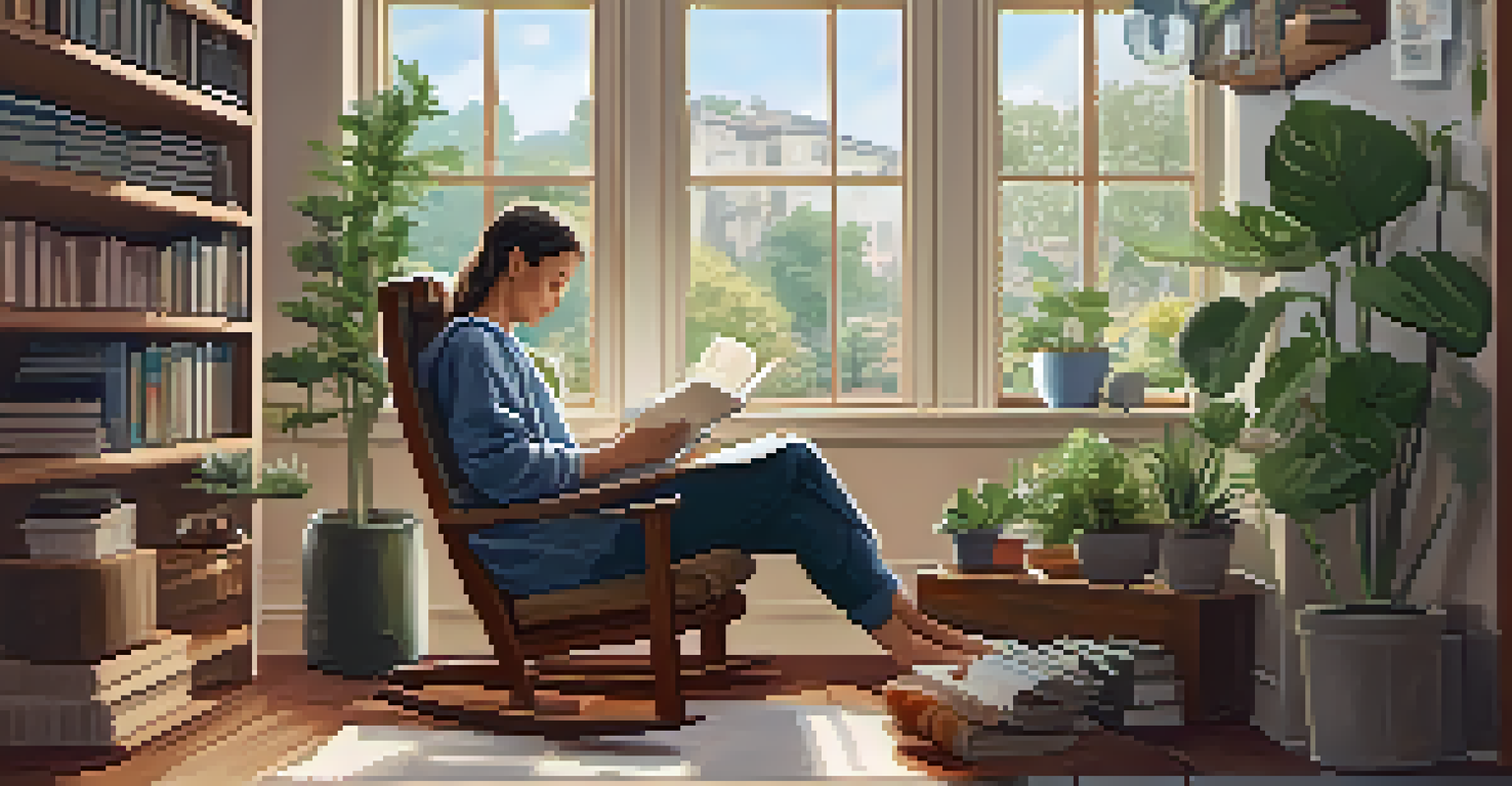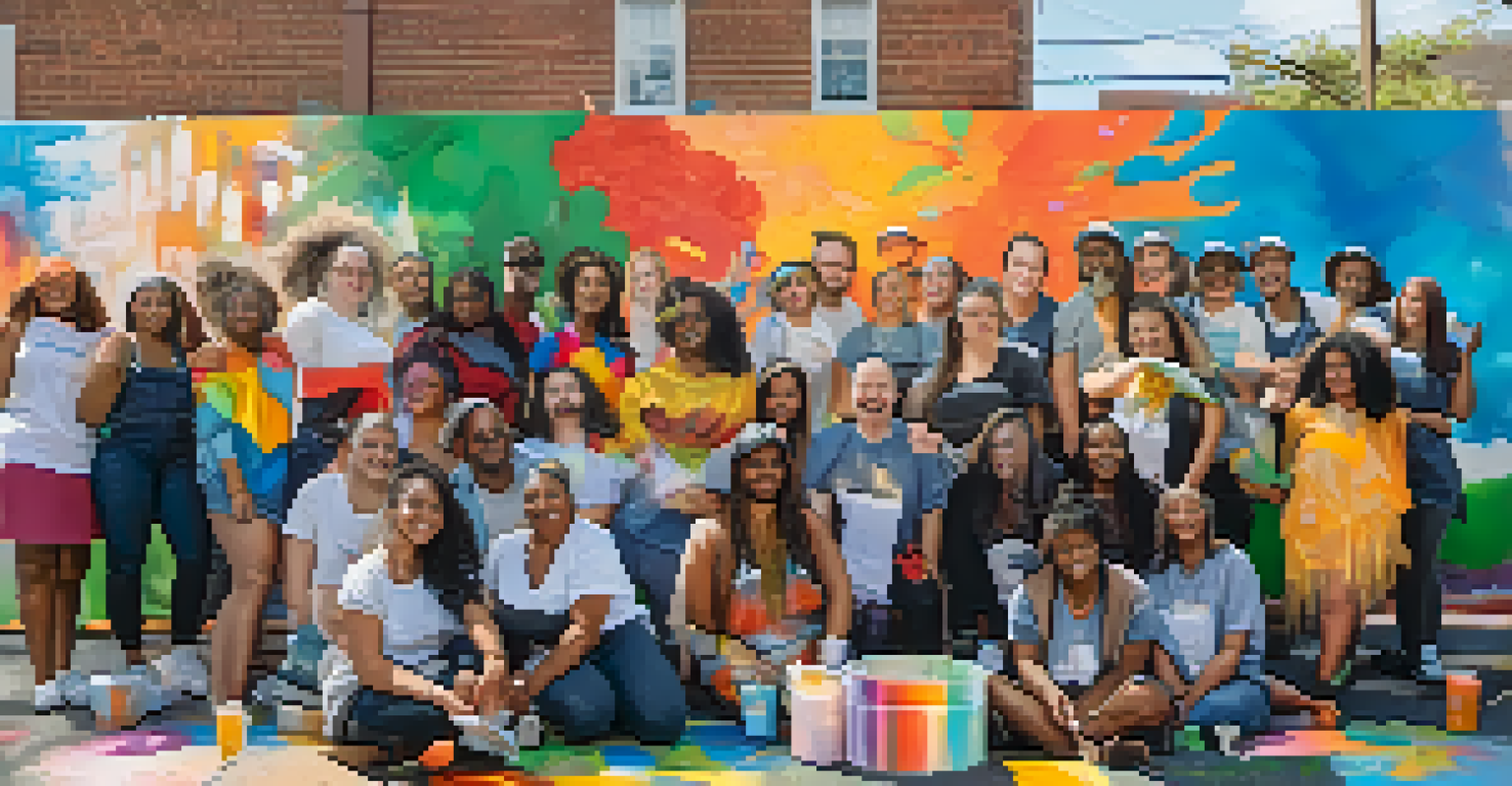The Role of Art and Creativity in Promoting Mental Health

Understanding Mental Health and Its Importance
Mental health is a crucial aspect of our overall well-being, influencing how we think, feel, and act. Just like physical health, it requires attention and care to thrive. Many people struggle silently with mental health issues, which can lead to challenges in daily life.
Art enables us to find ourselves and lose ourselves at the same time.
Recognizing the significance of mental health is the first step toward fostering a supportive environment. It’s essential to talk openly about mental health, breaking the stigma that often surrounds it. By doing so, we create spaces where individuals feel safe to share their experiences and seek help.
Engaging with creative outlets can be a powerful tool in promoting mental health. Art and creativity provide an opportunity for self-expression, allowing individuals to communicate feelings that might be difficult to articulate. This connection is vital in understanding and improving mental health.
The Therapeutic Benefits of Art
Art therapy has emerged as a compelling approach to mental health treatment, harnessing creativity to promote healing. This form of therapy allows individuals to express emotions through various artistic mediums, such as painting, drawing, or sculpting. The process can be incredibly liberating and serve as an emotional release.

Research shows that engaging in art can reduce anxiety, depression, and stress. When we create, our brains release dopamine, which enhances feelings of pleasure and satisfaction. This biological response can help uplift mood and foster a sense of accomplishment.
Mental Health Needs Attention
Just like physical health, mental health is crucial for overall well-being and requires open conversations and care.
Moreover, art provides a safe space for exploration and reflection. Individuals can confront their emotions and experiences through their creations, often leading to greater self-awareness and understanding. This journey can be transformative in coping with mental health challenges.
Creativity as a Coping Mechanism
In times of stress or emotional turmoil, tapping into creativity can serve as a powerful coping mechanism. Whether it’s writing, music, or visual arts, creative activities can distract us from negative thoughts and provide a sense of purpose. This redirection of focus can be incredibly beneficial in managing overwhelming feelings.
Music can change the world because it can change people.
For many, the act of creating is meditative. It encourages mindfulness, allowing individuals to immerse themselves in the moment and forget their worries. This presence can lead to reduced stress levels and an overall sense of calm.
Furthermore, creativity encourages problem-solving and adaptability. By navigating artistic challenges, individuals can build resilience and learn to approach problems in their lives differently. This newfound perspective can be valuable when facing mental health difficulties.
Art and Community Connection
Art has the unique ability to bring people together, fostering connections within communities. Participating in group art projects or workshops can create a sense of belonging, which is essential for mental well-being. These shared experiences can reduce feelings of isolation and promote social interaction.
Moreover, community art initiatives often address mental health awareness, providing education and resources to those in need. By engaging with art, communities can promote dialogue about mental health, breaking down barriers and encouraging support.
Art as a Healing Tool
Engaging in creative activities like art can promote emotional expression, reduce anxiety, and foster self-awareness.
The collective creation of art can also serve as a form of advocacy. Communities can use artistic expression to highlight mental health issues, pushing for change and raising awareness. This shared mission strengthens bonds and empowers individuals to support one another.
The Role of Music in Mental Health
Music is a universal language that can significantly impact mental health. Listening to or creating music can evoke strong emotions and memories, providing a therapeutic outlet for individuals. Many people find solace in melodies that resonate with their experiences, allowing for emotional release.
Research indicates that music can reduce symptoms of anxiety and depression. Engaging with music, whether through playing an instrument or simply listening, can release endorphins, improving mood and overall well-being. This response highlights the connection between music and our mental state.
Additionally, music can foster community and connection. Group activities like singing in a choir or attending concerts can enhance social bonds, providing a support network for individuals. This shared experience can significantly contribute to improved mental health.
Writing and Journaling for Mental Clarity
Writing can be a powerful tool for processing thoughts and emotions, helping individuals gain clarity and perspective. Journaling, in particular, encourages self-reflection and can be a safe space to express feelings without judgment. This practice can help individuals better understand their mental health journeys.
Moreover, writing can serve as a form of storytelling, allowing individuals to frame their experiences in a way that feels empowering. By articulating their narratives, they can find meaning in their struggles and recognize their growth. This can be immensely therapeutic.
Creativity Builds Community
Art can connect individuals within communities, creating support networks and promoting mental health awareness.
Regular writing can also enhance emotional regulation. It allows individuals to track their feelings over time, helping them identify patterns and triggers. This awareness can lead to healthier coping strategies and improved mental health management.
Incorporating Art and Creativity into Daily Life
Integrating art and creativity into daily routines doesn’t have to be daunting. Simple activities like doodling, coloring, or cooking can spark creativity and offer mental health benefits. The key is to find joy in the process rather than focusing on the end result.
Setting aside time for creative expression can help individuals reconnect with themselves and alleviate stress. Whether it's a few minutes of painting or writing each day, these moments can have a profound impact on overall well-being. Consistency can turn these activities into invaluable self-care practices.

Encouraging a creative mindset can also enhance problem-solving skills in everyday life. Embracing creativity fosters flexibility and open-mindedness, which can be crucial when navigating challenges. Ultimately, incorporating art into daily life can enrich mental health and promote resilience.